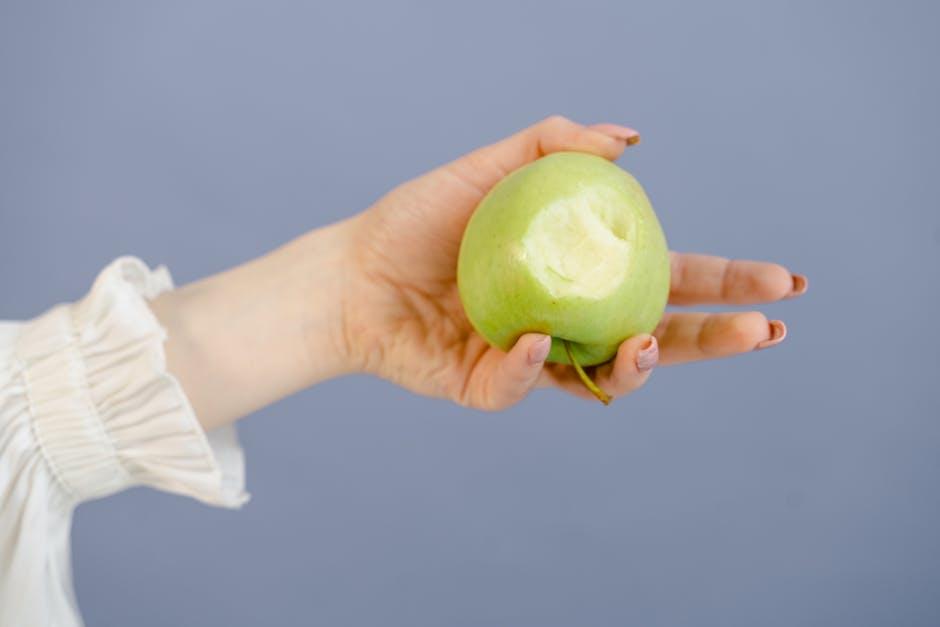In a world increasingly conscious of sugar consumption and its implications for health, the role of fruit in our diets has come under the microscope. Once hailed as nature’s candy, fruits are now caught in a complex narrative where their natural sugars are scrutinized alongside refined sugars found in processed foods. For those carefully monitoring their sugar intake, the question arises: are these juicy gems a dietary delight or a hidden hurdle? This article delves into the science and perspectives surrounding fruit consumption, aiming to uncover whether the natural sugars in fruits are friend or foe in the quest for balanced nutrition. Join us as we peel back the layers of this fruity conundrum, exploring expert insights and nutritional truths that may reshape how we view this vibrant food group.
Understanding the Sugar Content in Your Favorite Fruits
Fruits are nature’s candy, packed with essential vitamins, minerals, and fiber, but it’s important to understand their sugar content, especially for those mindful of their sugar intake. While some fruits have high sugar levels, others are relatively low, making them more suitable for certain dietary needs. Here are a few considerations when selecting fruits:
- Low Sugar Fruits: Opt for berries like strawberries and raspberries, which are deliciously low in sugar and high in antioxidants.
- Moderate Sugar Fruits: Enjoy apples and oranges in moderation; they provide a good balance of sweetness and nutritional benefits.
- High Sugar Fruits: Be mindful of bananas and grapes, which are on the sweeter side but can still be part of a balanced diet when consumed in moderation.
It’s also crucial to consider portion sizes and the overall balance of your diet. Pairing fruits with proteins or healthy fats can help mitigate the impact of sugar on blood sugar levels. Remember, the natural sugars found in fruits come with fiber and other nutrients that are often lacking in processed sugary foods.
Balancing Nutritional Benefits with Sugar Concerns
While fruits are often celebrated for their myriad of health benefits, including vitamins, minerals, and antioxidants, their natural sugar content can raise concerns for those monitoring their sugar intake. It’s crucial to recognize that not all sugars are created equal. The sugars found in fruits come with a package of fiber, water, and bioactive compounds that mitigate the sugar’s impact on blood sugar levels. However, it’s still essential to choose fruits wisely to maintain a balanced diet.
- Opt for whole fruits: Unlike fruit juices or dried fruits, whole fruits contain fiber that helps slow down sugar absorption.
- Prioritize low-sugar fruits: Berries, kiwi, and citrus fruits tend to have lower sugar content compared to tropical fruits like mangoes and pineapples.
- Mind the portion size: Even healthy foods can contribute to excessive sugar intake if consumed in large quantities.
Incorporating these strategies can help individuals enjoy the nutritional benefits of fruits while keeping sugar consumption in check. Balancing these aspects allows for a diet that is both nourishing and mindful of sugar concerns.

Practical Tips for Incorporating Fruits into a Low-Sugar Diet
Navigating a low-sugar diet doesn’t mean you have to cut out fruits entirely. In fact, fruits can be a nutritious part of your diet if you choose wisely and consume them mindfully. Here are some practical tips to help you enjoy fruits while keeping your sugar intake in check:
- Choose Low-Sugar Fruits: Opt for fruits that are naturally lower in sugar, such as berries, kiwi, and avocados. These fruits not only offer a burst of flavor but also provide essential vitamins and antioxidants.
- Mind Your Portions: Moderation is key. Instead of a large fruit salad, try incorporating smaller portions throughout the day. A handful of strawberries in your morning yogurt or a few slices of kiwi as an afternoon snack can satisfy your sweet cravings without overloading on sugar.
- Pair with Protein or Healthy Fats: Balance the natural sugars in fruits by pairing them with protein or healthy fats. Think apple slices with almond butter or berries mixed into a bowl of Greek yogurt. This not only helps regulate blood sugar levels but also keeps you fuller for longer.
- Opt for Whole Fruits: Whenever possible, choose whole fruits over fruit juices or dried fruits, which can contain concentrated sugars and lack the fiber found in their fresh counterparts.
By making informed choices and being mindful of portions, you can enjoy the natural sweetness of fruits without compromising your low-sugar diet goals.

Expert Insights on Moderation and Fruit Choices
When it comes to managing sugar intake, fruit often finds itself in the crosshairs of dietary debates. While fruits are packed with essential vitamins, minerals, and fiber, their natural sugars can be a concern for those monitoring their sugar levels. Expert insights suggest that moderation and informed choices are key. Not all fruits impact blood sugar equally, and understanding these differences can aid in making better decisions.
- Berries: These small, vibrant fruits are low in sugar but high in antioxidants, making them a perfect choice for those cautious about sugar intake.
- Citrus fruits: Oranges and grapefruits provide a burst of vitamin C with a moderate sugar content, often offset by their high fiber levels.
- Apples: Offering a good balance of fiber and sweetness, apples can be a satisfying snack without causing a sugar spike.
- Bananas: Though higher in sugar, bananas are a great source of potassium and can be consumed in moderation.
Ultimately, incorporating a variety of fruits while being mindful of portion sizes can help maintain a balanced diet without excessive sugar intake. Experts emphasize that it’s not about eliminating fruit but choosing wisely to align with individual health goals.

